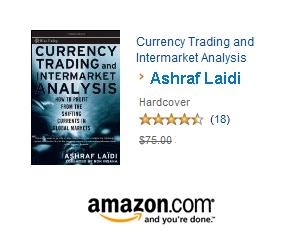Forum > View Topic
by Ashraf Laidi
Posted: Feb 22, 2010 5:00
Comments: 1558
Posted: Feb 22, 2010 5:00
Comments: 1558
Forum Topic:
JPY
Discuss JPY






http://www.cityindex.co.uk/market-analysis/market-news/10865342013/yen-gold-sink-in-sync/?cid=0000215115
Ashraf
in other words 5 banks control politics and central banks with the
derivative swaps bomb
With the recently renewed ISDA "scandal" a question arises:
how is it that real time prices are free of charge and real time credit ( CDS) data are very expensive and even more expensive access to rate swap data?
Could it be the central banks don't have a choice but to run the devaluation race?
http://video.cnbc.com/gallery/?video=3000164305&play=1
Ashraf
I think English has become my "first" language after all these years.
cat0nip,
Are you German..or just based in Germany?
Ashraf
How come you speak several languages fluently and better english than me, yet english is not your mother tongue. Life is so unfair :-)
Sir, The yen may be bruised by the Bank of Japan's willingness to unleash a monetary shock and awe, but Axel Merk's article “A weak yen is not the solution for Japan” (Insight, April 18), stating the yen is no longer a safe haven, is flawed. Mr Merk bases his argument on the deteriorating correlation between the yen and the Vix index. That is inaccurate on several levels.
First, the yen's reflexive rallies during market sell-offs continue to emerge. On February 25, the yen jumped 2.7 per cent versus the euro and 1.7 per cent against the US dollar (significant moves by FX market standards), while the S&P 500 fell 1.8 per cent on the day, its biggest percentage decline of the year at the time. On April 15, the yen rose 2 per cent and 1.4 per cent versus the euro and the US dollar respectively, as the S&P 500 plummeted 2.3 per cent, its biggest decline of the year.
Judgments may be clouded by the fact that equities have not been subject to any real test by the bears. Thus, year-to-date, the yen is down 12 per cent versus the euro and down 13 per cent against the US dollar, while the S&P 500 is up 10 per cent. But note that the Vix is up 15 per cent year-to-date, at a time when so-called “risk” markets are also higher.
These episodes clearly highlight the Japanese yen retains its safe-haven lustre during intraday and intraweek sell-offs. One reason is that the US dollar cannot solely and continuously assume the role of safe-haven currency at a time when neither the majority of Federal Reserve members, nor US data support the case for reducing asset purchases. Also, investors use currencies as vehicles to get in and out of risk-taking endeavours. Forced liquidations are increasingly frequent during overstretched markets and a rising yen is unavoidable. Most of all, it is premature to claim the end of the yen's safe haven. Let's wait until markets dare to decline by at least 7-10 per cent, before assessing the currency flows.
Ashraf Laidi, Chief Global Strategist, City Index, London EC2, UK
That makes much sense. If one of the highest leveraged EZone banks fails...no lifeboat.
Btw too bad Shakespeare is dead. If he lived now, he'd write
Angla and DSK. If the room maid doesn't want, I'll be the substitute. Whenever you want me.
Dunno whether sells better than Romeo and Juliet, but methinks such hot sex sells.
Comparable Dax levels at 7410, 7300/7285